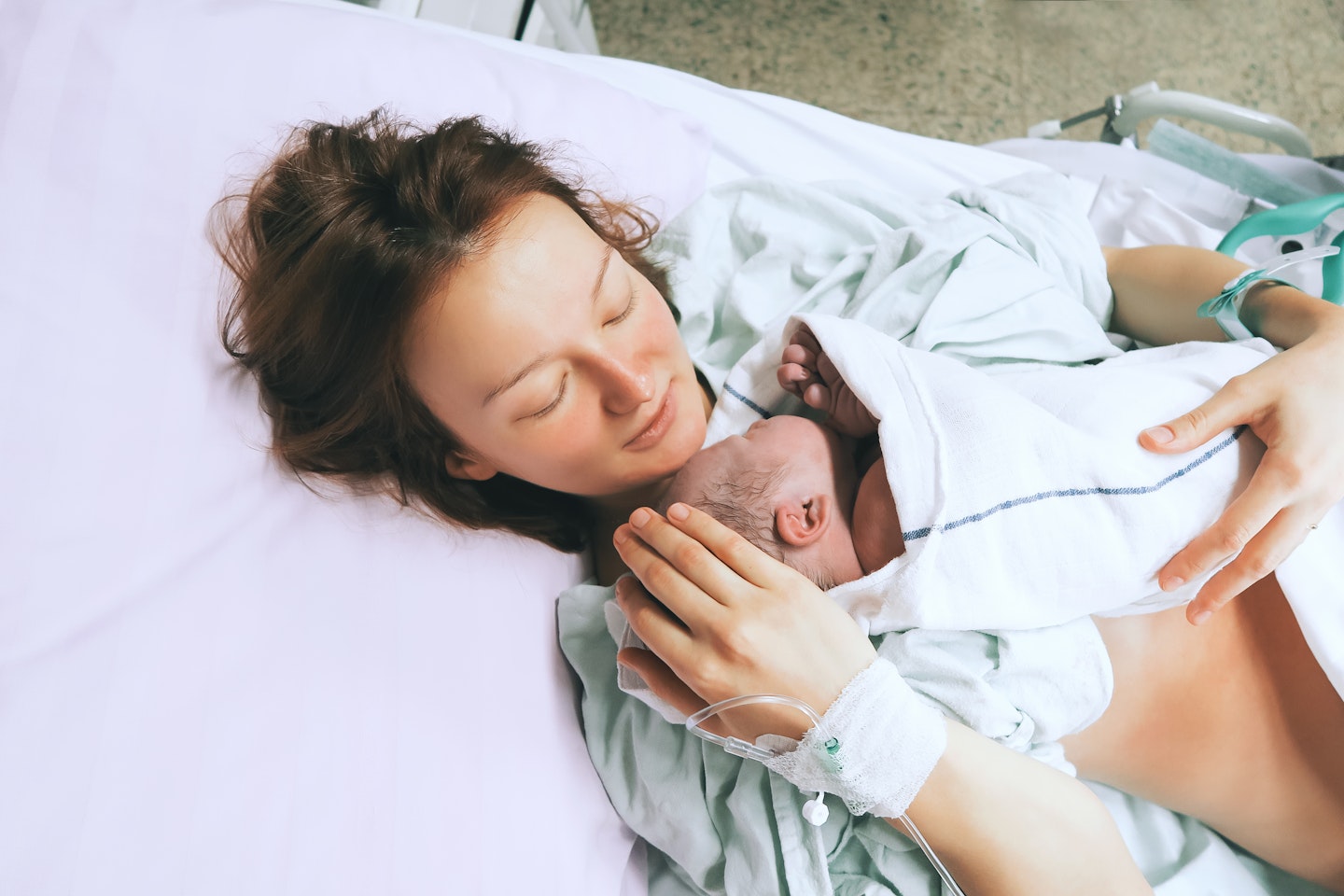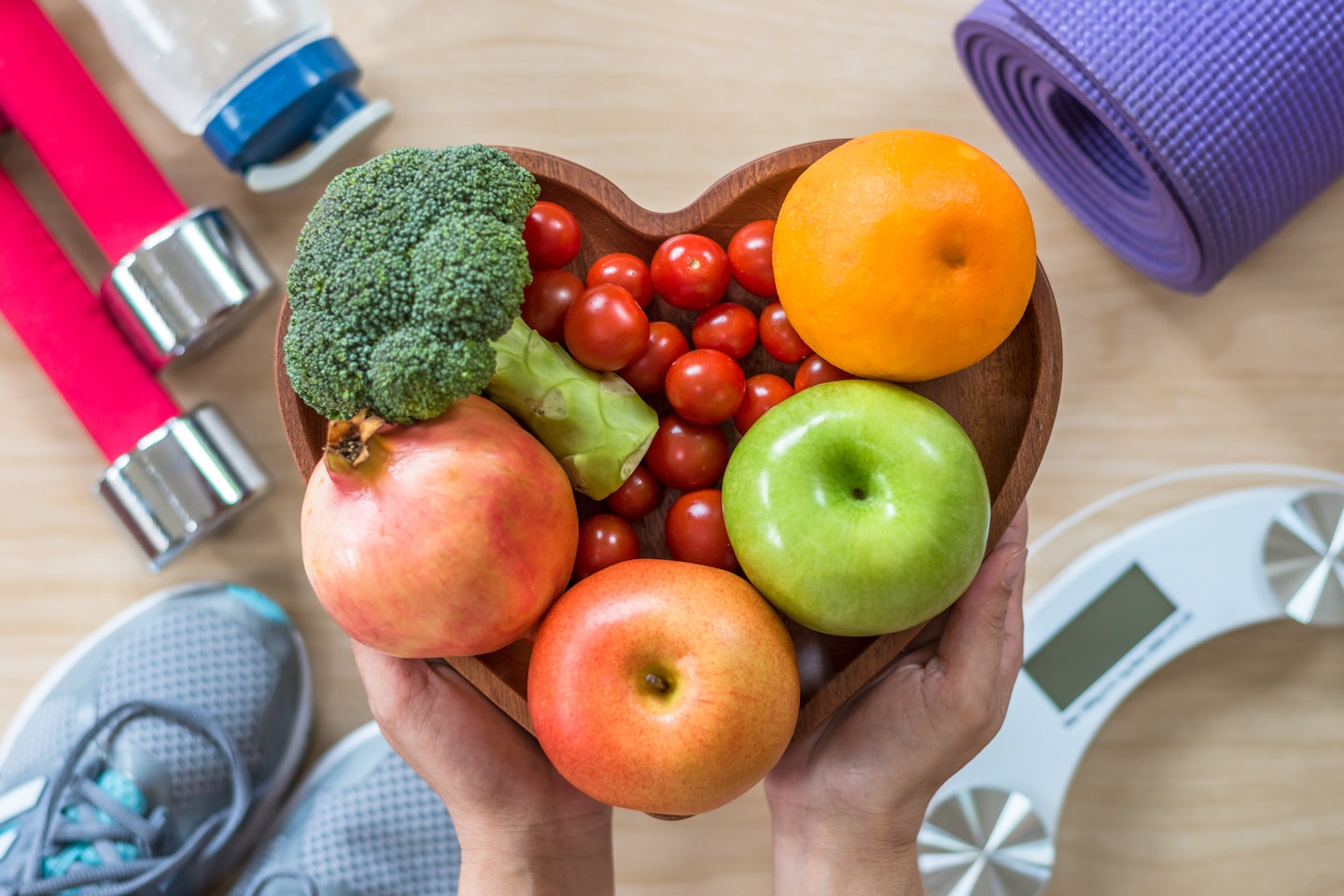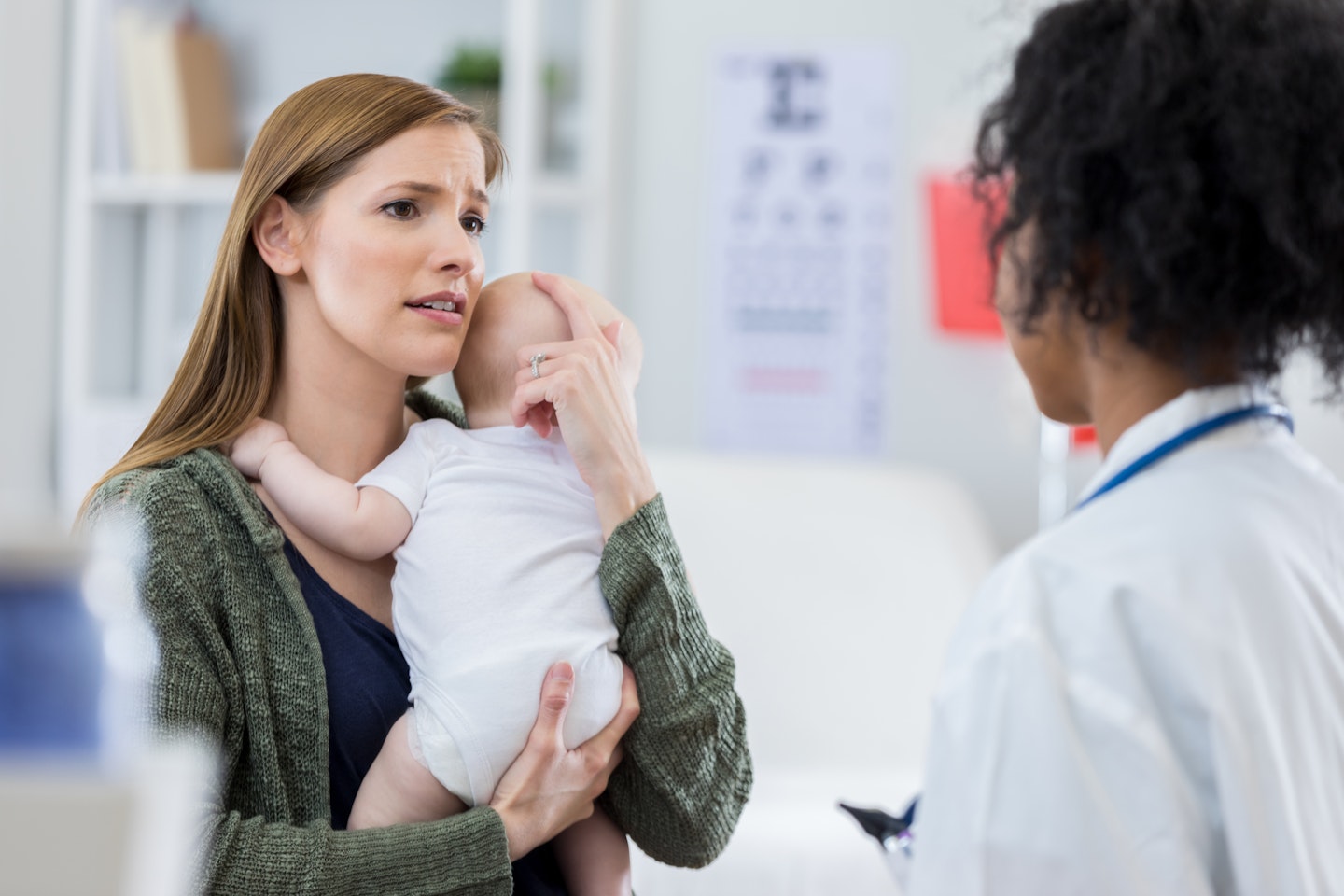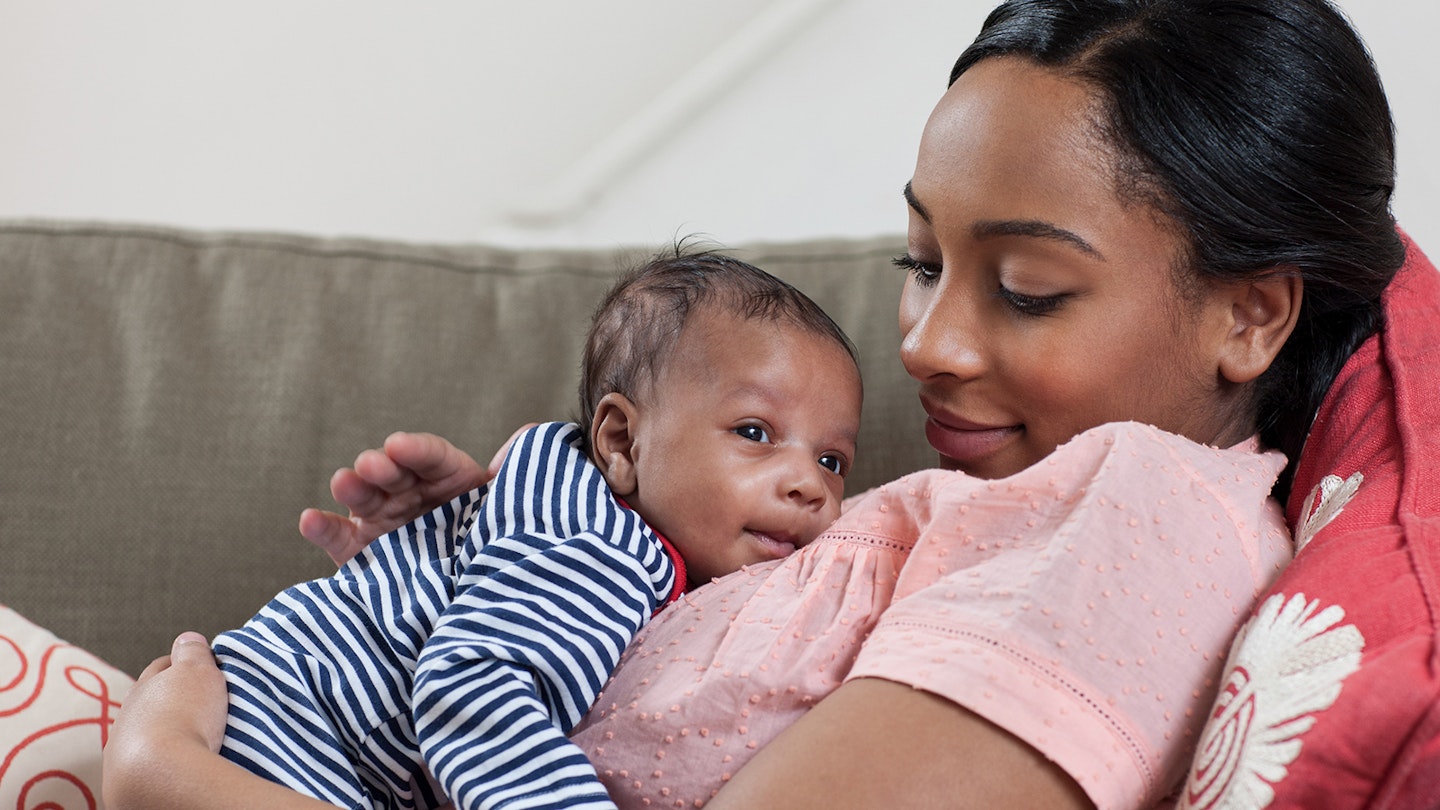A few simple health-checks before you get back to baby-making will make conception easier and help you grow a healthier child…
Growing a baby for nine months is one of the most demanding tasks your body has ever undertaken. So, before you ask your body for a repeat performance, it’s a good idea to check it’s back in shape and fully capable of building another baby.
‘You need to be sure that your body is working efficiently and in optimum health before you embark on conceiving a second child,’ says fertility and pregnancy author Anne Charlish. ‘That way, you’ll have a healthier, easier pregnancy.’
How long does it take for my body to heal after birth?

Research suggests that it takes a minimum of 18 months for your body to fully recover after the birth of your child. A study of 173,205 babies found that those at the highest risk of being born early, or with a low birth weight, were those conceived sooner than six months after the birth of an older sibling. Those at the lowest risk were conceived between 18 and 23 months after the birth of the first child.
‘Your body needs a chance to recover from pregnancy and birth if it’s to do a good job,’ Anne explains. ‘Even if you had a straightforward delivery, wait at least a year before you try to conceive again. If you had a c-section or a complicated birth, you’ll need two years to physically recover.’
Your pelvic floor, the sling of muscles that supports your uterus, bladder and bowel, will have been stretched by your growing baby. A vaginal delivery may have further damaged these muscles. Even if you had a c-section, you’ll need to get your pelvic floor into shape so it can support a second pregnancy, literally. Exercising these muscles will speed their reshaping: simply squeeze as if you are trying to hold a wee or wind in, release and repeat as many times as you can.
Healing from any surgery must also take place. If you had a c-section, remember there’s a scar on your uterus to match the one on your belly. ‘That must heal before it’s put under strain,’ says Anne.
Allow your hormones to get back to normal
It also takes time for hormones to stabilise after birth. ‘Levels of pregnancy hormones oestrogen and progesterone need to settle down before you think about conceiving,’ says Anne. These control ovulation and so affect fertility. ‘Some women find they get their first period a month after delivery, others return to normal after six months or so,’ Anne adds, ‘but it can take a year to get back to what’s normal for you.’
It’s not just the recovery of your reproductive system that you need to consider. ‘Pregnancy affects every system in your body,’ says Anne. ‘They all need to be functioning efficiently before you get pregnant again.’ For your body to operate at an optimum level, it needs an array of nutrients. Your nutritional reserves may currently be severely depleted because, when you were pregnant, your body also supplied your growing baby with all the nutrients he needed. His needs had priority over yours, so your body handed nutrients over even if it left you with less than you needed.
Iron is also key for your cardiovascular system, which circulates blood
‘Folic acid is used up in pregnancy and birth, and your baby uses up your store of calcium to form bones,’ says Anne. Iron is also key for your cardiovascular system, which circulates blood. It’s needed to make haemoglobin, the part of red blood cells that carries oxygen around your body and, when you’re pregnant, to your baby too. During your last pregnancy, your body needed up to 50% more iron than normal as your blood volume increased and your baby was busy storing enough iron to see him through his first six milk-only months. And then a lot was lost during post-birth bleeding.
‘Starting on a second pregnancy without restocking this store would affect your health,’ says Anne, ‘and you would feel tired and run down. It could also affect your ability to conceive.
‘The best way to make sure your body gets all these nutrients back is to eat a healthy, balanced diet.’ Easier said than done when you’re in the throes of life as a new mum, but those quick-fix carbs and sugary foods that tiredness tempts you to consume don’t do the job. ‘It’s hard to find time to eat a proper breakfast and manage your five-a-day, but nothing beats healthy eating,’ says Anne.
Eat healthily

Choose in-season fruit and veg, whole grains and lean protein. A US study discovered swapping some meat protein with vegetable proteins, such as soya beans and peas, boosted fertility. Top this up with a prenatal vitamin and your next baby will have all he requires during those crucial early weeks of development. And your replenished store will allow you to supply what your baby needs without it impacting on your own well-being.
Carrying too much weight can affect your ability to conceive for a second time
Healthy eating also helps you with the next step to a healthy pregnancy: getting back to your pre-baby weight. Carrying too much weight can affect your ability to conceive for a second time. ‘And there’ll be more pregnancy complications if you’re overweight,’ says Anne. ‘Normal problems, such as varicose veins, piles, aching feet and swollen legs, are made worse by being overweight.
‘It’s not easy. But don’t be demotivated by celebs who are back to their pre-baby weight within six weeks. They have a nanny, a personal trainer and someone doing the shopping and putting healthy meals in front of them!’
Deal with health problems head-on

Above all, deal with any lingering health problems that may point to a lack of physical recovery. In an Australian study, 94% of women reported health issues at six to seven months post-birth. These included backache, sexual problems, haemorrhoids, perineal pain and urinary incontinence. There’s a tendency for new mums to accept such issues as inevitable, but they’re all signs that your body hasn’t fully healed, so visit your GP for help.
Be careful too that life as a new mum doesn’t mask conditions such as postpartum thyroiditis, which can occur in the first year after birth with all-too-familiar symptoms of fatigue, weight changes and sleep difficulties.
Give your body time to recover, and you’ll feel better, physically and psychologically
Taking all these steps to get your body into good shape will have significant benefits. ‘Give your body time to recover, and you’ll feel better, physically and psychologically,’ says Anne. ‘Being run down and feeling tired are contributing factors to postnatal depression. Start your pregnancy from a good place, and you’re less likely to suffer from this.’
‘Aim to feel as fit and healthy as you were before you conceived your first baby,’ she adds. ‘That’s a reasonable expectation. Get right back to that starting point before you begin this journey again.’
MEET THE EXPERT: Anne Charlish, co-author of Fertility and Conception the Natural Way (£5.99, Lorenz Books).
